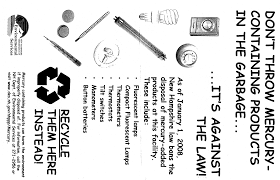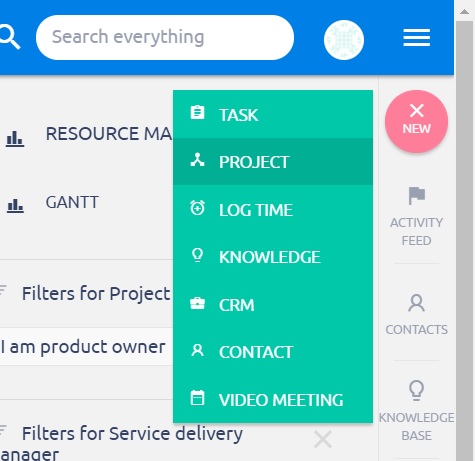
There are many types of management. Top-down management is just one type. Top-down leadership emphasizes hierarchy and punishing employees who fail to follow orders. This management style relies on intimidation or fear to keep employees on the right track. Other types emphasize the importance empathy. Both types of management can be equally effective. If you have any questions about management, please feel free to contact me! I'd be glad to answer your questions and help you find a good job!
Principles of management
Management is based on the principle that there must be a cause-and effect relationship between actions and their consequences. A good management strategy will enable you to create a link between what you do and the results that you desire. Management principles can be applied to all kinds of organisations, regardless how small or large they may be. This article will cover some of the most important principles and how they can be applied to different types of organizations. For more information, continue reading.

Functions of management
Management consists of planning, organizing staff, leading and managing. Depending on the level of the organization, managers may devote different amounts of time to each of these areas. Also, planning and organizing are not the same as leading and controlling, both of which are continuous processes. An organizing function involves defining a plan, and allocating resources in the most efficient way. Management is ultimately about reaching the destination without encountering any problems.
Technology has an impact on management
Technology has had a tremendous impact on business management. Henri Fayol was a French mining engineer who described a scientific way of managing a business in the early 1900s. Fayol identified six functions that managers must fulfill. These functions have affected nearly every department of most companies. The introduction of computer hardware and software revolutionized the way work is organized and directed. Managers remained relatively the same but new technologies and processes have dramatically changed how they conduct business.
Management: The value of empathy
Although many people believe that empathy is about having feelings and connecting with others, it can have real-world benefits for businesses. Empathy is linked to organizational and social success. Some definitions of empathy are less accurate because people tend to be more detached and uncaring about the lives of others. In such a climate, it can be difficult to develop empathy. This article examines some ways to improve your own empathy in your organization.

Poor management can lead to high costs
Management mistakes can result in lost productivity. Gallup reports that the annual cost of one disgruntled worker is $360 billion. Disengagement costs another expense. The business suffers enormously in both of these cases. Poor management not only results in lost productivity but also impacts the bottom line. Below are five signs that poor management is costing businesses money.
FAQ
What is TQM?
The industrial revolution led to the birth and growth of the quality movement. Manufacturing companies realized they couldn't compete solely on price. They had to improve efficiency and quality if they were to remain competitive.
Management developed Total Quality Management to address the need for improvement. It focused on all aspects of an organisation's performance. It included continuous improvement processes, employee involvement, and customer satisfaction.
How to effectively manage employees
The key to effective management of employees is ensuring their happiness and productivity.
It means setting clear expectations for them and keeping an eye on their performance.
Managers need to establish clear goals for their team and for themselves.
They should communicate clearly with employees. They must communicate clearly with staff members.
They also need to keep records of their team's activities. These include:
-
What was the result?
-
What was the work involved?
-
Who did it?
-
It was done!
-
Why did it happen?
This information can be used to monitor performance and evaluate results.
How can we create a culture of success in our company?
Successful company culture is one where people feel valued and respected.
It is founded on three basic principles:
-
Everybody has something to offer.
-
People are treated fairly
-
Respect is shared between individuals and groups
These values are reflected by the way people behave. They will treat others with kindness and consideration.
They will respect the opinions of others.
They encourage others to express their feelings and ideas.
A company culture encourages collaboration and communication.
People feel free to express their views openly without fear of reprisal.
They are aware that mistakes can be accepted if they are treated honestly.
The company culture encourages honesty and integrity.
Everybody knows they have to tell the truth.
Everyone understands that there are rules and regulations which apply to them.
Nobody expects to be treated differently or given favors.
Statistics
- The BLS says that financial services jobs like banking are expected to grow 4% by 2030, about as fast as the national average. (wgu.edu)
- The profession is expected to grow 7% by 2028, a bit faster than the national average. (wgu.edu)
- Hire the top business lawyers and save up to 60% on legal fees (upcounsel.com)
- The average salary for financial advisors in 2021 is around $60,000 per year, with the top 10% of the profession making more than $111,000 per year. (wgu.edu)
- Your choice in Step 5 may very likely be the same or similar to the alternative you placed at the top of your list at the end of Step 4. (umassd.edu)
External Links
How To
How can you apply 5S to your office?
A well-organized workspace will make it easier to work efficiently. An organized workspace, clean desk and tidy room will make everyone more productive. To ensure space is efficiently used, the five S's (Sort Shine, Sweep Separate, Store and Separate) are all essential. In this session, we'll go through these steps one at a time and see how they can be implemented in any type of environment.
-
Sort. You can get rid of all papers and clutter, so you don’t waste time looking for what you need. You need to put your things where you use them the most. Keep it near the spot where you most often refer to it. You should also consider whether you really need to keep something around -- if it doesn't serve a useful function, get rid of it!
-
Shine. Keep your belongings tidy and organized so you can spend less time cleaning up afterwards. Anything that could cause harm or damage to others should be thrown out. Find a safe way to store pens that you don't want anyone else to see. It might mean investing in a pen holder, which is a great investment because you won't lose pens anymore.
-
Sweep. Regularly clean surfaces to keep dirt from building up on furniture and other household items. You might want to purchase dusting equipment in order to make sure that every surface is as clean as possible. You can even set aside a specific area for sweeping and dusting to keep your workstation looking tidy.
-
Separate. Separating your trash into different bins will save you time when you need to dispose of it. You can dispose of your garbage easily by placing trash cans strategically around the office. Place trash bags next to each trash can to take advantage of the location.